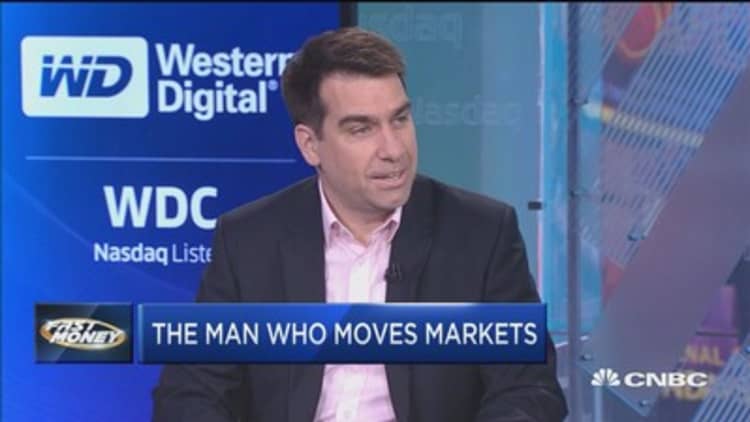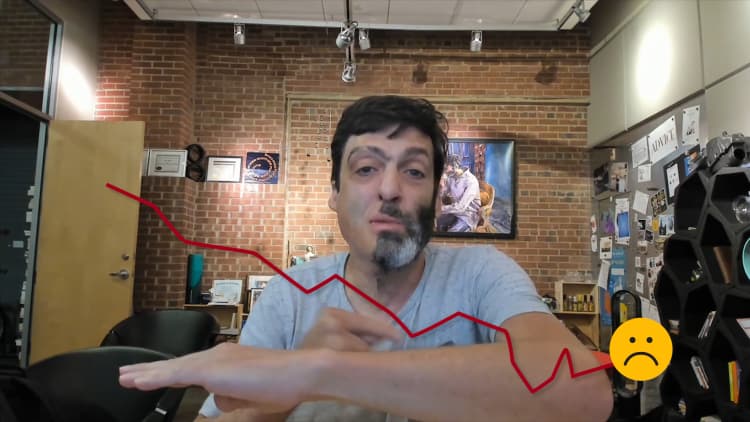
J.P. Morgan's chief quant says that the big rotation into value names should continue, and that stocks should move higher into October, and beyond, especially if the U.S.-Chinese trade talks go well.
Marko Kolanovic, global head of the macro quantitative and derivatives strategy team at J.P. Morgan, said his view is based on how he sees investor positioning, the underperformance of value names, and the unwind of technical flows last month in equities and bonds, which drove yields fell to extreme lows. The analyst, whose reports have moved the market, says stocks can keep moving higher beyond October, aided by central bank easing and fiscal stimulus.
The set up for the trade into value and out of momentum has been in the making for awhile. The strategist points out, in a note, that the market is virtually flat since January 2018, and most of the S&P 500 gains came from defensive sectors, those with bond-like features and "secular growth" tech names. Many of those are now being sold and "incorrectly in our view, are deemed to be impermeable to economic woes," he wrote.
"Given that the S&P 500 is heavy in bond proxies and secular growth, we would expect higher upside potential in small caps, cyclicals, value, and Emerging Market stocks than the broad S&P 500," he noted.

'Once in a decade'
In recent sessions, bond yields have moved higher and stock market indexes have made relatively small moves, but the underlying action in equities has been turbulent as investors tossed momentum names and jumped into value stocks. This rotation is apparent in the movement of the iShares Edge MSCI Momentum Factor ETF, and the iShares S&P 500 Value ETF, which traded in tandem but diverged recently.
In July, Kolanovic had alerted investors that the underperformance of value stocks, relative to volatility and momentum stocks, was worse than any historical factor divergence, even during the 1990s tech bubble.
At the time, he said "we think that the unprecedented divergence between various market segments offers a once in a decade opportunity to position for convergence."
Kolanovic says there is now another all-time extreme divergence, which came last Friday with the record performance gap between large-cap companies and small-cap names. The strategist says his small-cap momentum indicator, based on a weighted one-, three-, six- and 12-month price momentum, reached its maximum negative reading.
At the same time, the momentum indicator for the S&P 500 was at its maximum positive reading. The only other time this occurred was in February, 1999, he added.
"Many similar indicators suggest the gap is not sustainable between value, cyclicals, SMid and high beta stocks on one side, and momentum, low volatility, and growth on the other side," he wrote.
"While manufacturing lags both, we see that in the coming months one could expect manufacturing activity to pick up given the increased monetary stimulus, providing support for the market and value stocks. We think October negotiations will be the key for future performance of equity markets and more broadly the global economy," the strategist wrote.
Kolanovic said he's "cautiously optimistic" about the trade talks since polls indicate that a majority of American voters would blame the Trump administration's trade policies and the president for market volatility, and more than half would blame the president for a recession.
"If the October negotiations fail, these moves could be unwound, but given the extreme low positioning and style tilt, we think the downside is limited," the strategist wrote.



